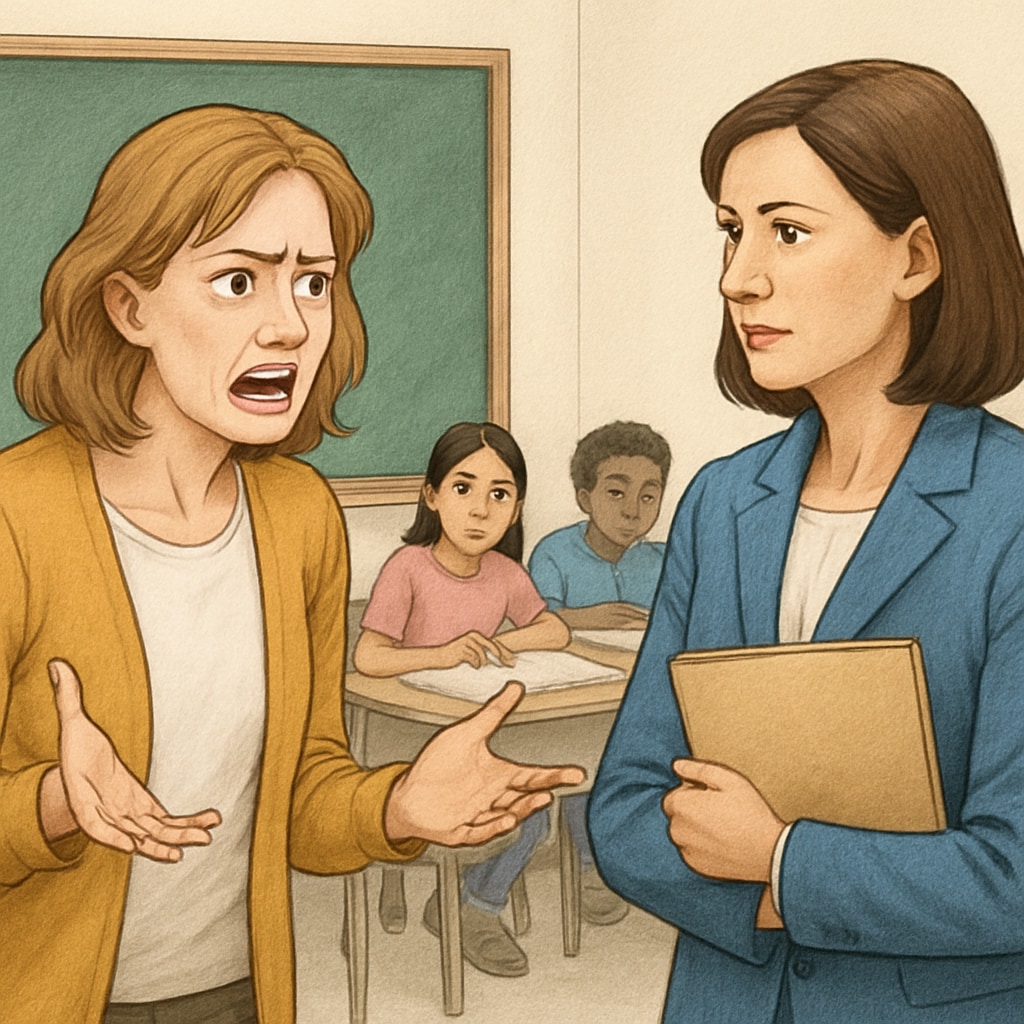In K-12 education, the presence of academic supervisors lacking professional expertise can create significant challenges for teachers. These supervisors, often appointed based on administrative or political reasons rather than educational qualifications, can undermine effective teaching and learning processes. The lack of professional competence not only affects the quality of education but also hampers teachers’ career growth and morale. Understanding the root causes and consequences of this issue is essential for preserving the integrity of the teaching profession.

Understanding the Problem: Unqualified Academic Leadership in Education
Academic supervisors play a pivotal role in shaping the educational environment, setting standards, and supporting teachers. However, when these leaders lack the necessary expertise in teaching methodologies, curriculum design, or classroom management, their decisions can be counterproductive. For example, one seasoned teacher recalled how a supervisor, with no prior teaching experience, mandated unrealistic lesson plans that disrupted the flow of effective learning. Such incidents highlight the disconnect between administrative decisions and practical classroom needs.
According to Britannica’s overview of education systems, leadership must align with pedagogical principles to maintain high standards. When this alignment is absent, teachers often face excessive workload, unclear expectations, and reduced autonomy, leading to frustration and burnout.

Impact on Teachers and Students
The consequences of unqualified academic leadership extend beyond teachers. Students are directly affected when instructional quality declines due to misguided directives. Teachers, who are experts in their fields, may find their expertise overshadowed by ill-informed policies, limiting their ability to deliver impactful lessons. This not only damages the reputation of the school but also compromises student outcomes, as shown in various studies on the correlation between leadership and academic performance (Educational Leadership on Wikipedia).
Moreover, teachers’ professional development suffers. Supervisors lacking professional competence often fail to provide meaningful feedback or support, leaving educators without the necessary tools to grow and innovate in their roles. Over time, this stalls career progression and diminishes the motivation to excel.
Solutions for Teachers Navigating Leadership Challenges
Despite the difficulties, there are practical strategies teachers can employ to mitigate the impact of unqualified academic leadership:
- Build collaborative networks: Establishing peer support groups within the school or district can help teachers share best practices and navigate challenges collectively.
- Focus on documentation: Keeping detailed records of teaching achievements and challenges can provide evidence to advocate for more informed policies.
- Seek external mentorship: Connecting with experienced educators outside the immediate work environment can offer valuable insights and guidance.
- Engage in professional development: Pursuing additional certifications or workshops can enhance individual expertise, making teachers less reliant on administrative support.
- Advocate for systemic change: Teachers can work together to voice concerns through unions, professional organizations, or direct communication with higher-level administrators.
While the presence of unqualified academic supervisors can be daunting, adopting these strategies enables teachers to maintain professionalism and continue delivering quality education.
Conclusion: Protecting the Integrity of Education
In the face of leadership challenges, it is crucial for teachers to remain resilient and proactive. By leveraging collaboration, documentation, and professional development, educators can uphold their standards and advocate for meaningful change. Addressing the issue of unqualified academic supervisors is not only vital for teacher satisfaction but also essential for preserving the quality of education for future generations.
Ultimately, teachers must remember their role as the cornerstone of learning, ensuring that even in the presence of leadership hurdles, their dedication to students remains unwavering.


